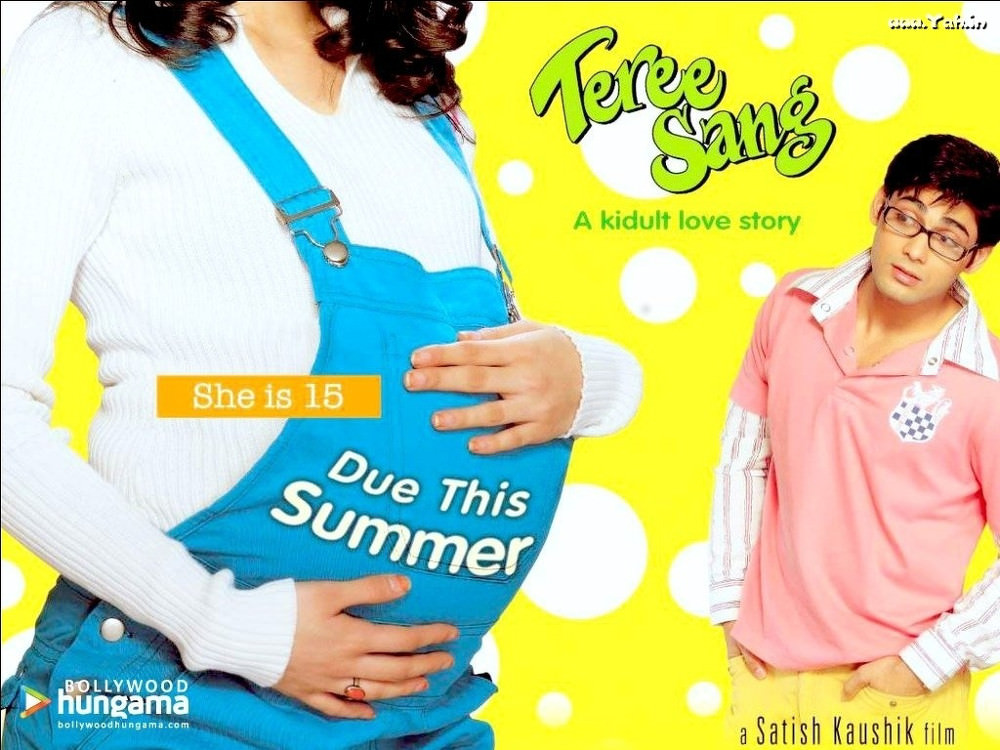Teree Sang


India
Teree Sang (2009) is often described as a remake of Juno (2007), although production began for Teree Sang that same year and the director Satish Kaushik has denied a connection. Producers of Teree Sang in fact received a legal notice from Ramoji Rao, the producer of the Telugu film Chitram (2000), claiming Teree Sang had plagiarised his film. Subtitled “A kidult love story”, Teree Sang focuses on teen pregnancy (as did the 2000 Hindi film Kya Kehna), through the fifteen-year-old Maahi (Sheena Shahabadi) and the seventeen-year-old Kabir (Ruslaan Mumtaz). Narratively speaking, Teree Sang arguably has most in common with the 2005 Hong Kong film 2 Young (directed by Derek Yee), including the camping trip that provides the teenagers the opportunity to have sex, and the rural location where they attempt to establish an “adult” life. In Teree Sang, the cross-class romance and the related pregnancy is opposed by both sets of parents, however, as in Juno, Maahi chooses not to have an abortion. Recalling the Romeo and Juliet remake Qayamat se Qayamat tak (1988), Maahi and Kabir escape from their parents’ city homes to an abandoned cottage on a hill station, where Kabir finds a construction job while Maahi sells fruit and tends to their home. While the teenagers’ parents eventually find them and accept their relationship and parental intentions, a lawyer initially hired by Maahi’s father prosecutes Kabir for sex with a minor. Maahi’s father defends Kabir, who receives a three month suspended sentence.
Acting great and producer of Teree Sang Anupam Kher (who has a brief role as the judge) claimed that the film “comes with that ability to connect with the youth. The hero isn’t someone who is macho or a cool dude while the heroine too is not overtly docile or a brat girl. They represent the youth of today and that gives the film its edge.” Like Juno and 2 Young, Teree Sang focuses on the institutions by which adolescence is monitored and guided, from sex education classes in Juno to chaperones in Teree Sang. While the young couples remove themselves through pregnancy from the proper developmental progress of adolescence, they do not remove themselves from authorised parental guidance. All three films ask the question “what counts as maturity?” and focus on the incredible difficulty of managing life for minors outside that guidance where their capacity to earn a living or have their decisions respected face major obstacles grounded in an equation of immaturity and minority. The diegetic emphasis on parental guidance is equally evident in this reviewer’s comments, who anticipates Teree Sang’s educative effects in the context of parent-adolescent relationships:
“The movie has a young, adult feel and a few numbers are quite peppy as well. Young parents will have a lot to learn from this. Those with teenagers or with kids approaching their teens will benefit a lot, too. Parents, this one is for you. Take your teenagers along.” (Martin D’Souza 2009) – Liam Grealy
Further reading:
– Driscoll, C. (2011). Teen film: A critical introduction. Oxford and New York: Berg.